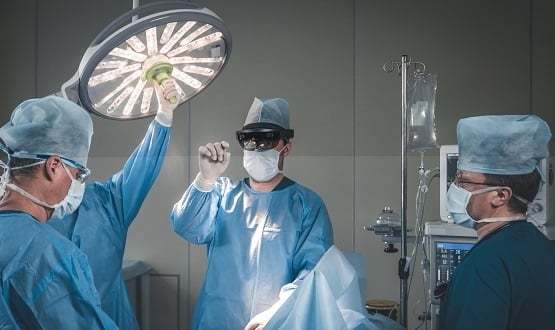10 Ways To Improve NHS IT – a Hospital Doctor’s View
- 10 December 2002
Hospital doctor, Andrew Harrison, worked in IT before studying medicine. His unusual background prompted E-Health Insider to ask him to list the top 10 improvements he would like to see in healthcare IT. Read on for the result…
Until the age of 29 I was a computer programmer working in the City. Then I decided to change career and went to medical school for five years. Now I am a doctor and I work as a house officer in general surgery at a hospital in the South of England.
As a house officer, my role is to implement the treatment regime planned by more senior members of the team. A large percentage of the job involves clerical tasks, particularly filling in forms and delivering them to the relevant part of the hospital. Good computer systems could make my work much more efficient.
When I was a programmer I believed that simple straightforward IT solutions were much better than trying to design complex ‘all singing all dancing’ systems. I hope that designers of systems for the NHS will follow the advice we were given as medical students when revising for finals:
"Concentrate on being able to do the basic things well".
Here are 10 ways in which the NHS’s new IT Tsar could help me in my work:
1. Email referrals.
To refer a patient to another hospital involves a lot of faxing. Sometimes fax machines are engaged or run out of paper and the only way to guarantee that they are in the office of the intended recipient is to phone up and check. This should be replaced by emailing.
2.. A directive on PDA usage.
House officers carry around paper lists of their patients, with brief details and jobs which need to be done for them.
As the day progresses the lists are scrawled over as new jobs come up, patients are discharged and new patients arrive. The lists are either hand written or produced using a word processor and the house officer makes a new version each day.
A few of us keep our lists on PDAs, and I find this far more efficient. However there is no hospital policy on PDA usage so I cannot connect it to any computer in the hospital. Therefore I cannot back up my list, and I cannot print out a copy to give colleagues who look after my patients when I am not there.
3. Online booking of tests.
This would save me repeatedly having to write out name, date of birth and hospital number on request forms. Forms would no longer get lost, would not have to be hand delivered and their position in the queue could be tracked.
4. Electronic TTA forms.
When patients leave hospital, I fill out a ‘TTA’ (‘to take away’) form, which lists their medication, diagnosis and future management plans. It is supposed to carbon copy itself four times – one each for the medical notes, the patient, the GP and the hospital – but the copies become very faint after the top two. TTA’s could be done online and would be a good first step towards a national electronic record system.
5. Electronic drug record.
If a patient is on several drugs, it is often difficult to find out the history behind each one. Were they started by the GP or at a clinic, or during a previous admission? So it is difficult to stop any drugs and be confident they are no longer needed. Conversely if a patient arrives in hospital without their current medication there is no simple way to find out what they should be taking. This would be a good second step towards a national electronic record system.
6. PDA downloadable results.
Looking further ahead, hospital computer systems should present blood results, imaging reports, etc., in a format that PDA applications can read, making them available at the bedside.
7 PDA booking of tests.
8. X-rays displayable on PCs.
I could already retire if I had a pound for every time I overheard someone saying, "Do you know what’s happened to
Mr….’s X-rays?"
9. Decision support systems.
Useful for confirming a diagnosis and as a learning tool.
10. Mobile electronic records.
As a longer term goal I would hope to be able to access all medical records at the bedside from a tablet type device. Notes would never get lost, never be in the wrong order and I would be able to read all the handwriting.
In my hospital, there are two PCs in the doctors’ mess. Both are on the network, but only one has a printer, so all the doctors queue to use this one. I asked the IT department to make the printer shared on the network so that it could be used from either terminal. I reminded them of my request two weeks later and again two weeks after that, to be told "you can’t expect things to be done overnight – this is the NHS you know". So if it takes over a month to get a printer networked, what hope is there for my other requests?




